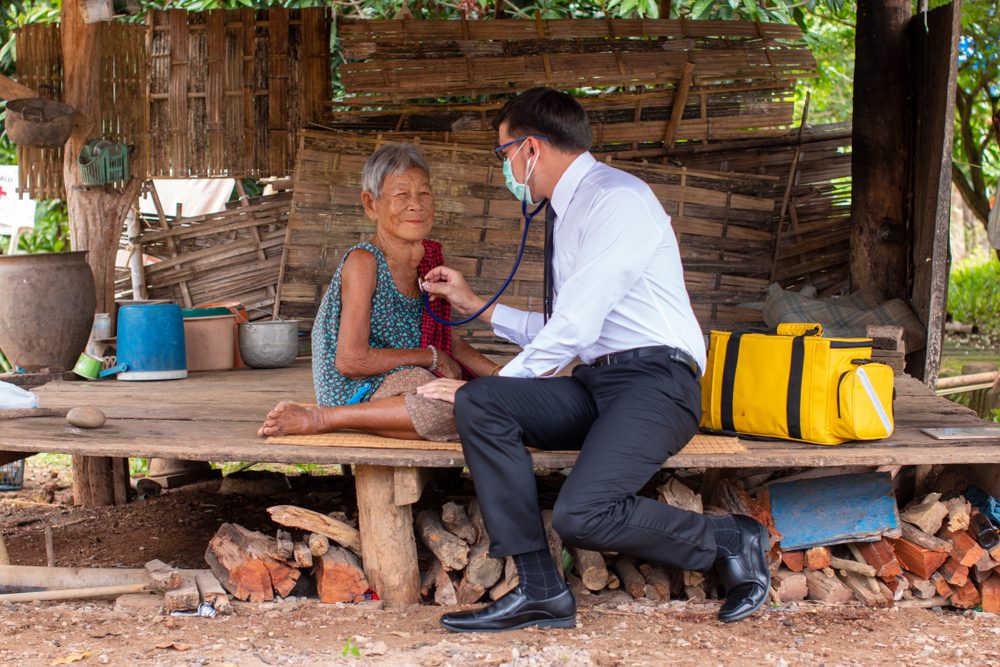Introduction
Mothers stand out as the unsung heroes of family and community well-being in the peaceful embrace of the countryside, under clear, crisp air and the leisurely pace of life. The beautiful scenery may have an air of pastoral charm, but it veers into a world where the subtle difficulties faced by rural mothers are hidden. This blog aims to reveal the unique struggles faced by mothers in rural areas beneath the peaceful exterior. Through the course of this story, we set out on a quest to identify these issues and pave the way for all-encompassing fixes that will protect the well-being and emancipation of the devoted individuals who constitute the resilient core of rural communities.
Limited Access to Healthcare
Limited access to healthcare facilities is one of the main issues facing mothers living in rural areas. It can be difficult for families to access healthcare in an emergency and for expectant mothers to receive appropriate prenatal care when they live in a remote area where the closest clinic or hospital may be miles away. Community-driven projects, like mobile health clinics that periodically travel to rural areas to provide necessary healthcare services, can be established to address this.

Educational Opportunities
Although it’s a powerful tool for empowerment, there aren’t enough educational opportunities in many rural areas. This has an effect on the mothers as well as the community’s general development. This gap can be filled by setting up local learning centers, putting adult education programs into place, and using technology to learn remotely. By doing so, mothers living in rural areas will have access to information that can improve their lives and the lives of their families.
Economic Empowerment
Mothers must frequently deal with financial constraints due to the lack of employment opportunities in rural areas. Encouraging skill development and entrepreneurship is a crucial part of empowering them economically. Mothers can become financially independent by being empowered to earn income from within their communities through local cooperatives, vocational training programs, and microfinance initiatives.
Mental Health and Well-being
Mothers’ mental health can suffer from isolation and the hard lifestyle that comes with living in a rural area. Creating a network of dependable community members is vital. Support groups, counseling services, and awareness campaigns are a few examples of initiatives that can assist mothers in addressing mental health issues while promoting emotional well-being and a sense of community.
Agricultural Innovation and Sustainability
Mothers are vital pillars of agricultural sustainability and family livelihoods in the heart of rural landscapes. Given their critical role, it is necessary to adopt sustainable farming methods that ensure that vital resources are accessible. Teaching these moms fosters a dedication to economically and environmentally sustainable practices while also increasing productivity.
Infrastructure Development
Mothers in rural areas face significant challenges due to inadequate infrastructure, which includes things like unreliable power sources and inadequate transportation. Collaborative efforts between local communities, government agencies, and non-governmental organizations hold the key to a transformative solution. It is possible to make substantial progress in infrastructure improvement by focusing coordinated efforts. Improved road construction makes it simpler to get to necessary services, such as prompt medical attention and educational opportunities. A stable power supply not only enhances daily living but also opens avenues for economic activities, benefitting mothers and their families. By putting conservation projects into action, a basic need is met and sustainable living is promoted. When taken as a whole, these initiatives not only ease immediate suffering but also open doors to a better standard of living by equipping rural moms with the resources they need for all-encompassing growth.
Empowering Through Technology
In the digital age, technology appears to be a driving force for improvement in rural areas. By filling in access gaps, mobile application development plays a critical role in providing mothers with essential health information and educational resources. Additionally, these apps help moms connect across distances by facilitating the creation of support networks. E-commerce platforms also give rural moms more power by providing a virtual market for their handcrafted goods. This expands their market reach outside of local borders and improves economic opportunities. A more inclusive and cohesive community is fostered when technology and traditional craftsmanship combine to create a potent synergy that empowers rural mothers to use digital tools for both economic and personal empowerment.
Community Engagement and Participation
In rural areas, maintaining cultural heritage requires empowering mothers by involving them in decision-making processes within the community. Mothers can contribute to local development plans and voice concerns by establishing open dialogue platforms, which guarantees that their distinct perspectives are recognized. This inclusiveness builds the community’s fabric and encourages a sense of empowerment. Mothers who are actively involved in decision-making preserve cultural knowledge and customs, which makes the social fabric stronger and more diverse. This strategy guarantees that cultural heritage stays vibrant and essential to rural communities’ identities, while also acknowledging the significance of mother voices.
Preserving Cultural Heritage
In the face of progress, it is critical to preserve rural areas’ cultural heritage. More than just sentimental get-togethers, cultural events, festivals, and heritage projects give moms a stage on which to demonstrate their traditional knowledge and crafts. This dual role serves as a vehicle for economic empowerment in addition to fostering a strong sense of identity. Mothers play a vital role in the sustainable development of their communities by showcasing their rich cultural heritage. This allows tradition and progress to coexist peacefully, forming a future that respects the past while seizing the opportunities of the present.

Conclusion
In conclusion, the process of empowering mothers in rural areas is a group effort characterized by kindness, ingenuity, and a commitment to advancement. We are creating a sustainable and empowering future as we work to address issues in infrastructure, healthcare, education, and economic opportunities. We are not just solving problems. Mothers can now actively shape the futures of their families and communities in addition to navigating obstacles by working together, accepting creative solutions, and advocating for transformative change. We have the ability to genuinely make a positive and long-lasting difference in this joint endeavor, making sure that every mother feels empowered, resilient, and the heart of the countryside beats with opportunity.


